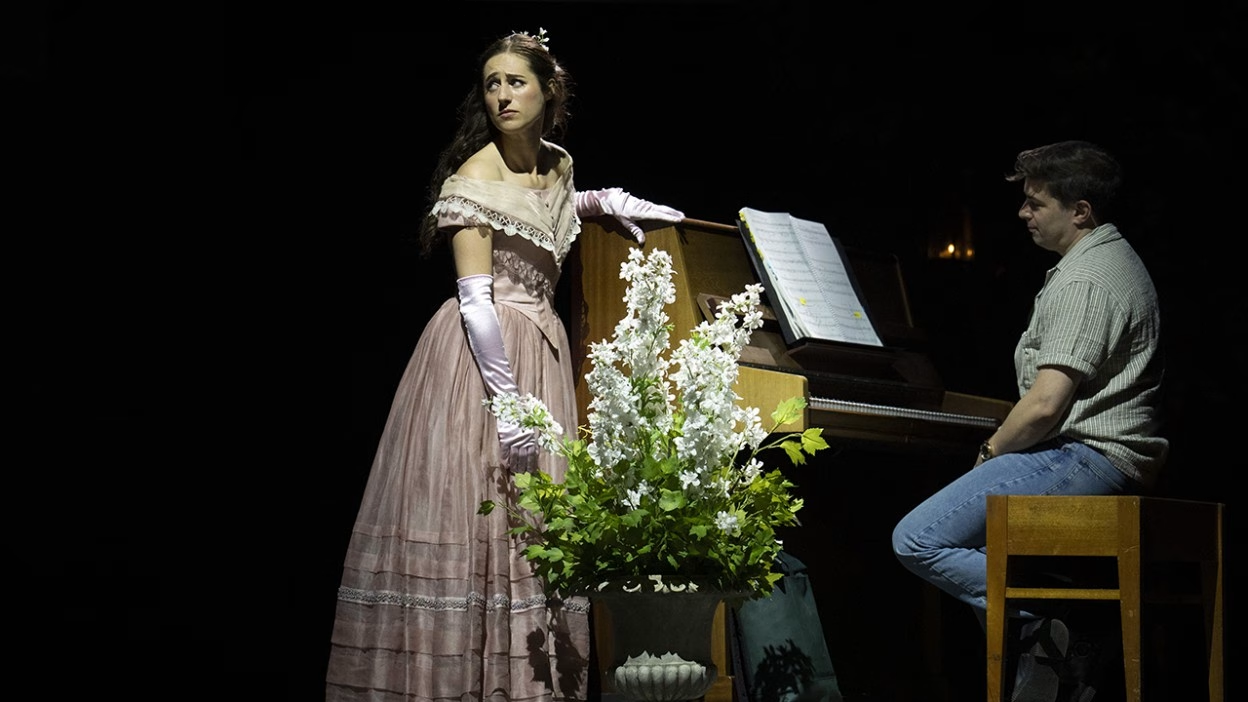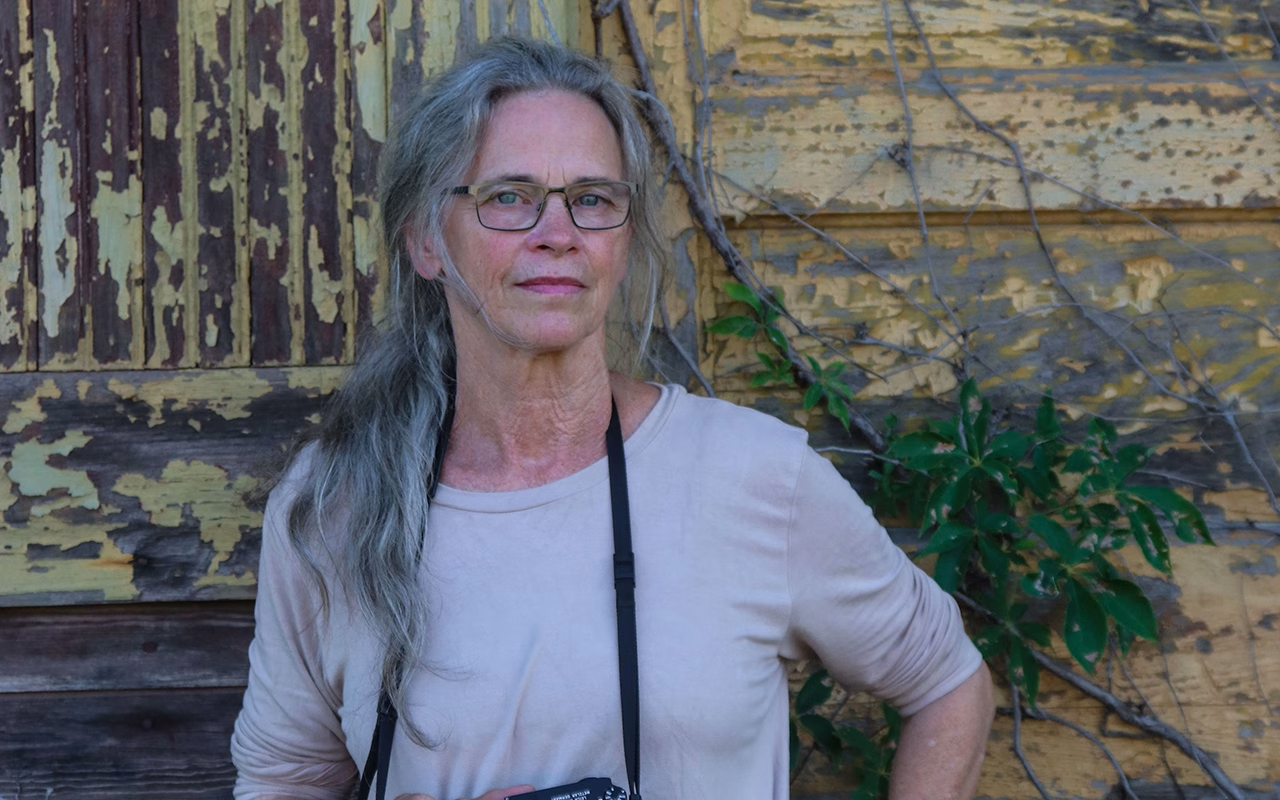Anton Chekhov often contemplated the idea of writing an opera, at times even collaborating with luminaries like Tchaikovsky and Rachmaninov. He once suggested a libretto based on Lermontov’s story “Béla” to Tchaikovsky and discussed adapting his own tale, “The Black Monk,” with Rachmaninov. In 1903, near the end of his life, he hosted a young composer, Alexander Scriabin, at his home in Yalta, although the details of their conversation remain a mystery.
However, we do know what transpired when composer Colin Matthews and author William Boyd first met in 2019. Their discussion centered on Chekhov and Scriabin’s encounter, particularly the intriguing possibility of a Chekhov opera derived from Chekhov’s short story “A Visit to Friends.” They speculated about an anonymous manuscript that might have surfaced in a Moscow archive, leading to a staged adaptation. This exchange inspired the world premiere of a chamber opera at the 2025 Aldeburgh Festival, depicting an opera director, three singers, and a repetiteur grappling with the mounting challenges of bringing such a work to life.
Operas that explore the creative process of staging other operas—like Antonio Salieri’s First the Music and Then the Words and Richard Strauss’s Ariadne auf Naxos—represent a niche genre usually crafted by seasoned composers and librettists. While Matthews and Boyd are established artists, neither has previously ventured into opera. Yet their mutual passion for Chekhov, their ability to traverse different styles and periods, and their knack for tackling complex problems rendered their approach to this project quite fitting.
The opera unfolds across eight scenes, interwoven with four scenes from the “rediscovered” piece based on a concise version of the original story, which Boyd previously adapted for his 2013 play Longing. In this interpretation, Chekhov’s unlikable character Sergei is removed, merging the roles of Tatiana and Varia to focus on the love triangle involving Misha—a Moscow lawyer returning to his dilapidated childhood estate—Varia, a financially struggling doctor, and her younger sister Nadia, who has long harbored feelings for Misha.
Misha is portrayed by baritone Marcus Farnsworth, with mezzo-soprano Lotte Betts-Dean as Varia and soprano Susanna Hurrell as the eager and impressionable Nadia. Their distracted director, Gregor (Edward Hawkins), and the supportive repetiteur, Chris (Gary Matthewman), who offers musical interjections, add depth to the rehearsal dynamics.
The rehearsals, ranging from preliminary sings to full runs, are rife with challenges but sound exquisite, thanks to Matthews’ chamber orchestration that resonates with the lyrical essence inspired by Scriabin, particularly his Fourth Piano Sonata. Throughout the opera, the lines between Matthews’s distinct musical voice and Scriabin’s style gradually merge, mirroring the characters’ evolving entanglements.
This intertwining of characters and singers serves as a focal point of the opera, encapsulated by Gregor’s early assertion: “They try to hide their feelings, but nothing is really hidden.” Chekhov’s original story subtly explores shifts in perspective that illuminate the complex emotional landscapes of its characters. As the singers attempt and ultimately fail to realize the manuscript, their own complicated relationships come to light.
The piece is executed beautifully under Jessica Cottis’s energetic direction, with Rachael Hewer’s stagecraft creating an engaging setting that shifts between a sparse rehearsal space and Varia’s crumbling dacha. The pacing is as relentless as one of Boyd’s novels or Matthews’s orchestral works, delivering a captivating theatrical experience.
While the opera is infused with humor, its structure is fundamentally tragic. The climax arrives during a dress rehearsal when an accidental slip leads to chaos, prompting a reflection on art’s revelatory power. The quartet sung by the soloists emphasizes the fleeting clarity of artistic expression, suggesting that while insights may be ephemeral, they are invaluable.
Matthews, who served as Benjamin Britten’s assistant until 1976, remains a beloved figure in the Aldeburgh Festival community, with a legacy spanning diverse musical endeavors. His recent accomplishments, including a new String Quartet No. 6, showcase his unique rhythmic style, complemented by performances of works by Frank Bridge and Beethoven. While there are currently no plans for the opera to be staged beyond its initial performance, its artistry undeniably warrants broader recognition.
Guy Dammann teaches philosophy and music at Uppsala University.













